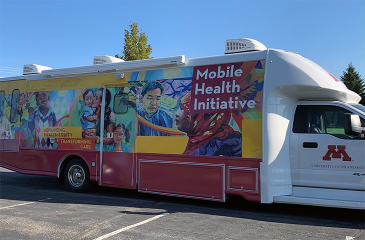Alana Petrassi, a medical pediatric resident at the University, found that her experience with the Mobile Health Initiative (MHI) helped remind her of why she joined the medical field and that simply providing access to people can make a big difference.
Petrassi first joined the MHI as she had seen firsthand how language, cultural, and transportation barriers affect patient care and outcomes.
“I had experience in refugee health in both undergrad and medical school. Through these experiences, I realized how important it is for the medical community to reach out to immigrant and refugee communities. Many times people would report having questions during medical visits they didn’t ask because of language barriers or feeling uncomfortable with providers,” she said.
The most meaningful experience for Petrassi was assisting a young woman from Ecuador with a rheumatoid arthritis flare while working in mobile health.
“It was obvious from first glance how much pain she was in and how debilitating her condition was. It felt awful to know she was suffering like this when for most patients this presentation would be swiftly treated,” she said. “We were able to coordinate with rheumatologists at the University and get labs and a treatment plan ordered.”
After finishing her Medicine Pediatric Residency, Petrassi plans on doing a fellowship in rheumatology.
“I hope to be able to work with immigrant and lower socioeconomic populations who are disproportionately affected by the more severe complications of rheumatic disease,” said Petrassi.
The Mobile Health Initiative (MHI) advances health equity through local partnerships and service. Interested in collaborating or volunteering? Submit a Mobile Health Inquiry.



